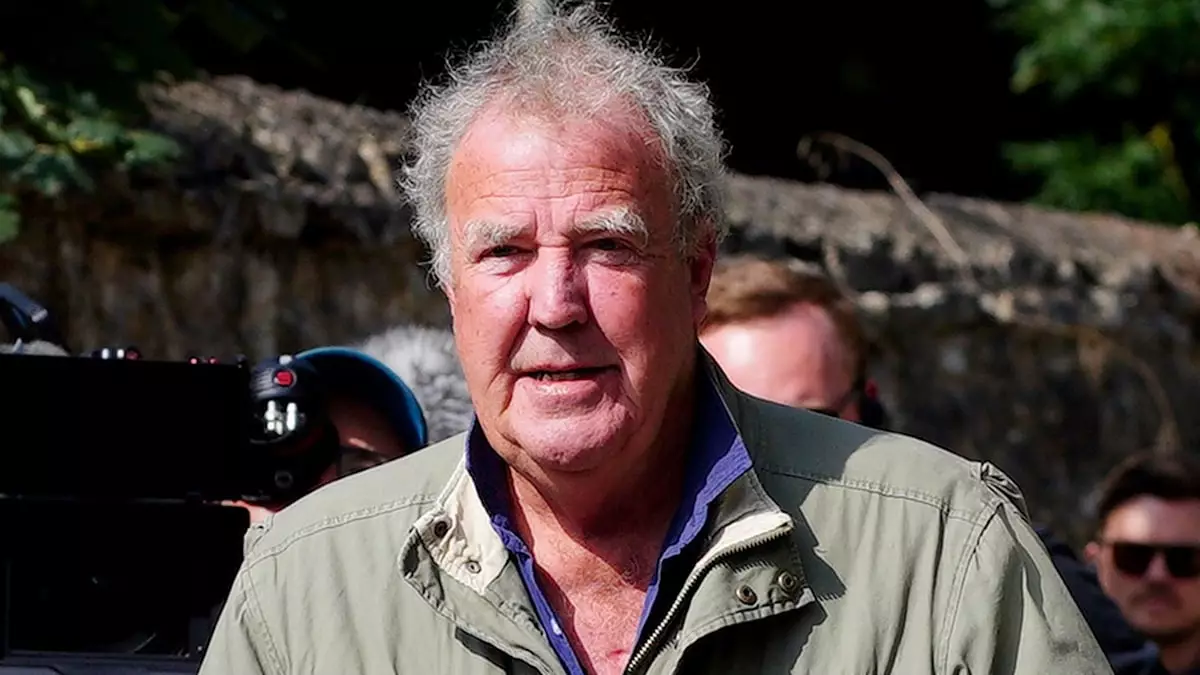The social media landscape is often a battleground of opinions and personalities, and Jeremy Clarkson has made a name for himself within that arena. Known for his blunt humor and controversial opinions, the former Top Gear host turned farmer recently found himself in the eye of a social media storm—a fitting metaphor given the weather chaos unleashed by Storm Éowyn. With his 8.8 million Instagram followers, Clarkson’s latest posts have garnered attention not just for their content but for the polarized reactions they invoke.
As Storm Éowyn swept across the United Kingdom, bringing severe weather warnings and a risk to life, Clarkson’s Instagram activity took a sharp turn into the world of sarcasm. He implored fans to “pray for us” while showcasing the idyllic landscape of Diddly Squat Farm under clear skies, seemingly far removed from the storm’s destruction. This juxtaposition brought together humor and reality in a way that only Clarkson could masterfully orchestrate.
His amusing portrayal of a serene countryside during a catastrophic weather event raises questions about the boundaries between humor and insensitivity. On one hand, Clarkson’s style resonated perfectly with his audience, who appreciated the levity amid chaos. On the other hand, it sparked criticism from individuals who felt his approach was tone-deaf, especially considering the genuine struggles many faced battling the storm. The reaction was telling; while many laughed, others were outraged, highlighting how humor can often be received through vastly different lenses depending on one’s circumstances.
The controversy surrounding Clarkson extends beyond mere comedic posts; it also infiltrates his commercial ventures, most notably his Diddly Squat Farm Shop. The uproar over his pricing—most notoriously, a £200 pie—has stirred public sentiment and rekindled discussions about value, marketing, and Clarkson’s offbeat charm. When a disgruntled fan took to social media to air grievances regarding the shop’s offerings, Clarkson’s witty yet defensive retort was predictable.
He maneuvered through the backlash with his characteristic flair, asserting that the exorbitantly priced pork pie wasn’t made of food, thereby transforming a potential public relations disaster into yet another opportunity for humor. However, the exchange underlines a larger conversation about the luxury market in rural tourism, particularly in areas frequented by a celebrity like Clarkson. Is he a genuine farmer offering local produce, or is he merely commodifying the farming experience for fun and profit?
Clarkson’s escapades at Diddly Squat Farm exemplify the challenges celebrities face in maintaining authenticity while juggling public personas and business aspirations. For some, Clarkson represents the classic “celebrity farmer” stereotype, marked by inflated prices and the sell of lifestyle rather than sustenance. Yet, for others, his humor and candidness resonate on a deeper level, hinting at the absurdity of modern life.
This dichotomy is especially evident in the mixed responses to his posts. For every comment lauding his humor, there’s an equally passionate critique pointing out the plight of real farmers and those affected by the severe weather. Amid the chaos of social media, this backlash is but a reflection of societal values—one that often holds humor in conflict with empathy.
Jeremy Clarkson’s recent exploits amid Storm Éowyn serve as a demonstration of a broader cultural narrative where social media acts as both a platform for entertainment and a sounding board for social commentary. In a world where public figures are scrutinized and revered simultaneously, Clarkson embodies the complexities of navigating fame, personality, and societal moods.
The essence of his recent posts exemplifies the delicate balance between humor and sensitivity—an important lesson in our contemporary discourse. Whether one loves him or loathes him, Clarkson remains a testament to the unpredictable nature of celebrity in today’s world, leaving us to ponder: Can one truly be funny in the face of genuine adversity, or is it a negotiation of territory that demands greater care? The answer may very well lie in our own individual perceptions of humor, reality, and the shared experiences that unite us all.
